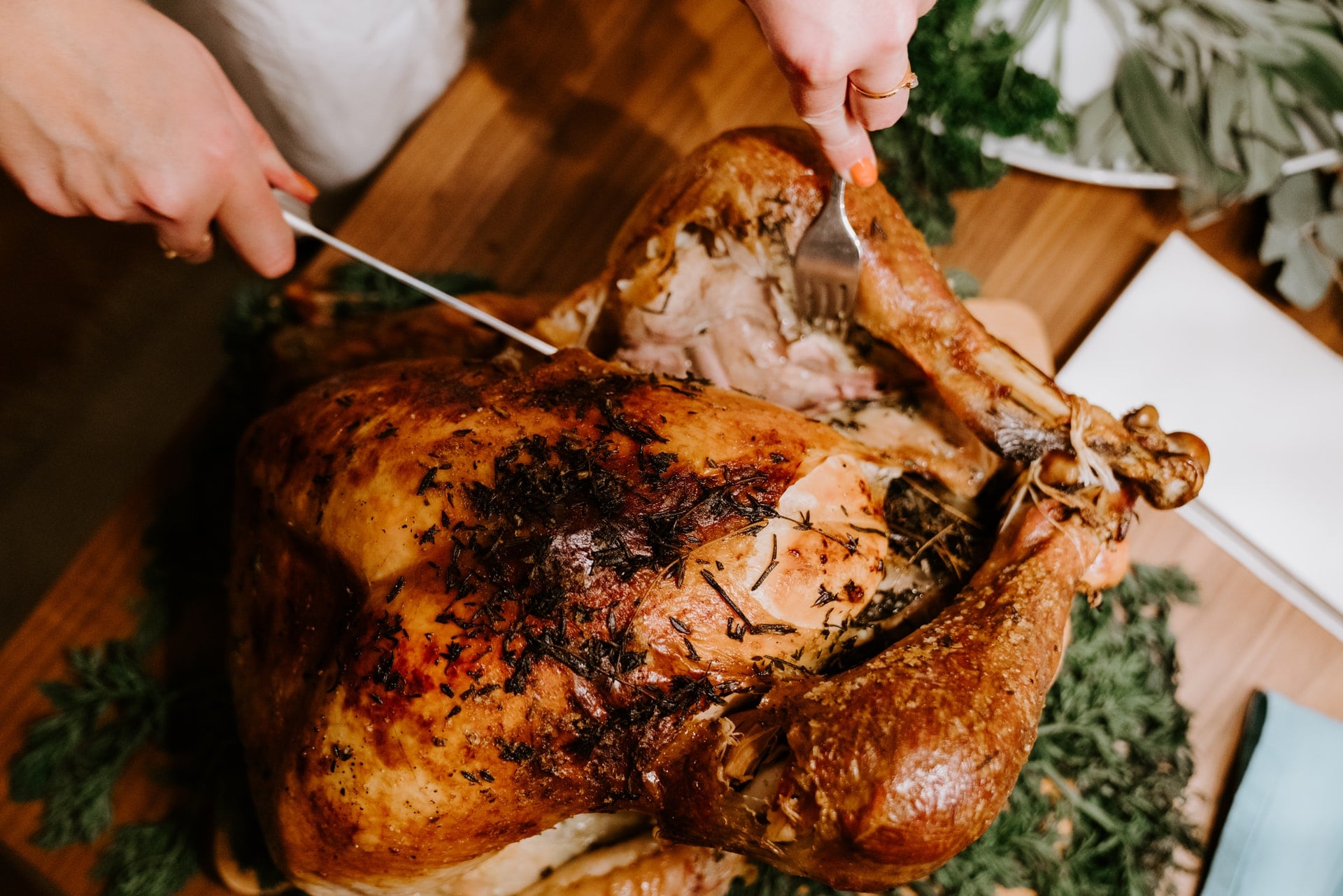The holidays are often a fan-favorite time of year, but can also bring danger when it comes to the traditional Thanksgiving turkey. From deep frying to undercooking, there are several threats that could bring small inconveniences - or even large disasters. Here are some simple ways to safely prepare your Thanksgiving feast and reduce the risk of an accident.
According to the National Fire Protection Association, deep fryer fires cause an average of more than $15 million in property damage each year. Never, under any circumstances, put a frozen turkey in the deep fryer. The frozen meat reacts with the boiling oil, making it flow over the sides and into the fire to create a recipe for disaster (rather than delicious turkey.) Before turkey day officially arrives, place your frozen turkey in the refrigerator a few days ahead of time. Never thaw your turkey on the counter; doing so puts the meat at risk of salmonella.

Sweet potato casserole, green bean casserole, mashed potatoes, stuffing, gravy, rolls - not to mention the turkey! The head chef has a lot to juggle in preparation for Thanksgiving dinner, which is why it's important to remember to always wash your hands after handling raw meat. Wash your hands with warm soapy water for 20 seconds before and after handling a turkey, always using separate knives, cutting boards, and dishes for preparation.
Meat thermometers are a must! The perfect Thanksgiving turkey is cooked thoroughly, but that stays juicy when it comes out of the oven. Turkey should always be cooked to a safe internal temperature of 165° F to ensure that it's thoroughly cooked and ready for carving. Where you insert the meat thermometer is equally important, placing it at the thickest part of the breast to avoid bone and get a true temperature reading.
When the big dinner is all done, it's common to have leftovers for the next day (or three). Seal up leftovers and place them in the refrigerator within two hours of the meal to keep bacteria from growing while also reducing condensation that can form if it's stored too early. If you store your food within this timeframe, you're guaranteed some delicious and safe leftovers for the days ahead.
Lowry Insurance is thankful for the clients that trust us for their custom insurance needs. From personal insurance policies to business insurance for companies of any size, we're proud to work to deliver the ideal insurance solution that keeps each of our clients protected no matter what life may have in store. Interested in learning more about how Lowry can help you? Contact us today to speak to one of our representatives and get a free quote on custom coverage.